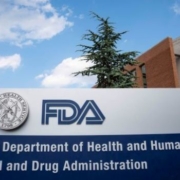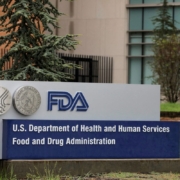Shanghai set out plans on May 16 for the end of a painful COVID-19 lockdown that has lasted more than six weeks, heavily bruising China’s economy, and for the return of more normal life from June 1.
Half of the COVID-19 patients discharged from a Chinese hospital in early 2020 still have at least one symptom two years later, a new study shows. Additionally, new findings suggest patterns of inflammatory proteins in the blood of people with long COVID may someday help guide individualized treatment.
Shanghai is tightening an already strict COVID-19 lockdown in a fresh push to eliminate infections outside quarantined areas of China’s biggest city by late this month, people familiar with the matter said.
China-based Hutchmed failed to get the U.S. Food and Drug Administration’s approval for the company’s proposed drug for pancreatic cancer.
China’s commercial capital of Shanghai was dealt a blow on May 2 as authorities reported 58 new COVID-19 cases outside areas under strict lockdown, while Beijing pressed on with testing millions of people on a May Day holiday few were celebrating.
U.S. FDA declines to approve two more China-tested drugs
Business, China, Complete Response Letter, FDA, FDA Statements, Gastroenteropancreatic neuroendocrine tumors, Gastroenteropancreatic Neuroendocrine Tumors, Gastrointestinal Tumors, Lung Neuroendocrine Tumors, Nasopharyngeal Carcinoma (NPC), Neuroendocrine Tumors, Oncology, R&D, Shares, Therapeutics, Throat CancerThe U.S. Food & Drug Administration declined to approve two China-tested cancer treatments on Monday, saying one of the companies – Hutchmed Ltd. – needs to test its drug for the U.S. population in a diverse multi-regional trial.
Individual Studies Suggest Pfizer’s Paxlovid May Treat Long COVID
'Herd Immunity', BioSpace, CDC, Clinical Trials, CNN, Coronavirus Cases, Coronavirus Disease 2019 (COVID-19), Coronavirus Disease 2019 (COVID-19) Reinfections, Dr. Anthony Fauci (Director), Hong Kong, Hospitalized COVID-19 Patients, JAMA Network, Long COVID, National Institute of Allergy and Infectious Diseases (NIAID), Omicron (B.1.1.529) (South Africa), Paxlovid, Psychiatric Disorders, R&D, Reuters, Sinovac, Stanford UniversityAlthough research is being conducted on Long COVID or Long COVID-19, whose symptoms continue for weeks and months after initial infection, there are very few ongoing clinical trials on treatments. Anecdotally, there has been what appears to be a successful treatment for Long Covid using Pfizer’s antiviral regimen Paxlovid.
A second Global COVID-19 Summit will be held virtually during May for countries to discuss efforts to end the pandemic and prepare for future health threats, according to a joint statement on April 18.
COVID-19 vaccine candidates developed by a Sinopharm subsidiary and Sinovac Biotech to target the Omicron variant were approved for clinical trials in Hong Kong, the companies said on April 16.
The U.S. Securities and Exchange Commission (SEC) added 12 China companies to their delisting watchlist.






 Reuters
Reuters
 Reuters
Reuters Reuters
Reuters